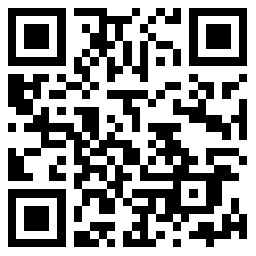Mr. Huang as the attorney of Mr. Liu won the second trial of the trade secret infringement case
Recently, we received the Beijing Intellectual Property Court's (2022) J73mZhong No. 1195 civil judgment. In the case of a company in Beijing suing Mr. Liu for trade secret claims involving the customer list of 4.8 million yuan, after the first instance rejected all the claims of a company in Beijing, a company in Beijing refused to accept and filed an appeal. The second instance rejected the appeal and upheld the original judgment. Lawyer Huang Jibao participated in the proceedings of the first and second instance of the case on behalf of Mr. Liu.
1、 Basic facts involved in the case
In April 2016, Mr. Liu signed a labor contract with a company in Beijing for a period of one year. Mr. Liu was appointed as the lecturer of the company to teach stock related courses to shareholders of a platform. Both parties signed the Employment Cooperation Agreement, Lecturer Cooperation and Confidentiality Agreement, etc., stipulating that the lecturer shall not disclose the company's business model, course content, business performance and other trade secrets to any third party, do not recommend stocks, do not finance on behalf of customers, do not open any private contact information on any platform of Party A, and do not ask for or keep any customer contact information privately.
In May 2017, Mr. Liu terminated the labor contract with a company in Beijing and asked Mr. Liu to return his QQ account and password, which Mr. Liu refused. The company filed a lawsuit to Beijing Shijingshan Court, requesting that Mr. Liu be ordered to compensate the economic loss of 4.8 million yuan.
In order to prove Mr. Liu's infringement, the company submitted evidence such as the list of its own customers and the list of trainees in the second phase of training submitted by Mr. Liu in the labor dispute case between the two parties. It believed that the list of its own customers was the information in the company's customer database, which Mr. Liu himself could not obtain, but submitted in the labor dispute case, indicating that he had stolen the information in the company's customer database; As for the list of phase II students, the company believes that Liu Renyuan prepared it himself, including customer ID, name, telephone number, amount, filing time, filing person, time of course purchase, etc.
2、 Opinion of the court of second instance
The court of second instance held that the focus of the dispute in this case was whether the information claimed by a company in Beijing met the legal requirements for trade secrets. Trade secret has three legal requirements: not known to the public, having commercial value, and the obligee taking corresponding confidentiality measures. A Beijing company should bear the burden of proof that the trade secret it claims meets the legal requirements.
About not being known by the public. Although a company in Beijing claimed that the QQ number involved in the case contained its company's business information such as creativity, management, sales, finance and customer information, which was confidential, it did not provide relevant evidence to prove it.
The obligee shall take corresponding confidentiality measures. A company in Beijing claimed that it and Mr. Liu had implemented confidentiality measures through prohibitive provisions in a series of agreements. After investigation, the confidentiality agreement involved in the case did not specify the scope and specific content of business secrets, and other agreements did not contain the specific content of business secrets claimed.


3、 Comment on Lawyers Handling Cases
Article 9, paragraph 4 of the Anti Unfair Competition Law stipulates that "the trade secret referred to the technical information, business information and other business information that are not known to the public, have commercial value and have been taken corresponding confidentiality measures by the obligee".
Article 5, paragraph 2 of the Provisions of the Supreme People's Court on Several Issues Concerning the Application of Law in the Trial of Civil Cases of Infringement of Trade Secrets stipulates that "the people's court shall determine whether the obligee has taken corresponding confidentiality measures according to the nature of trade secrets and their carriers, the commercial value of trade secrets, the identifiability of confidentiality measures, the correspondence between confidentiality measures and trade secrets, and the obligee's willingness to keep secrets".
According to the provisions of laws and judicial interpretations, the obligee shall provide evidence that the information it claims conforms to the legal requirements for business secrets when it files a case of infringement of business information trade secrets such as the customer list. In this case, a company in Beijing did not have the ability to provide evidence, so the information it claimed did not constitute a trade secret.
(1) The company did not specify the specific content and carrier of the trade secret it claimed.
The company advocates to protect the customer information database, but it is unable to take out a specific customer information database, nor to present a specific carrier. It is unable to specify the customer list information contained in the so-called customer information database, as well as the relevant management, sales, finance and other business information. The existence of the customer information database is the company's way of reasoning and imagination to prove its existence, which is absurd in itself. At the same time, Mr. Liu's QQ number has no relevant management, sales, financial and other business information, and the QQ number is not the carrier of the company's trade secrets.
(2) The information claimed by The company in Beijing is known to the public and has no commercial value.
The customer statistical table contained in the customer information database and labor dispute evidence claimed by the company has no commercial value, does not contain in-depth information different from relevant public information consisting of transaction habits, intentions, content, etc., and does not constitute a customer list in the sense of anti unfair competition law.
(3) The company did not prove that it had taken confidentiality measures for the information it claimed.
The company claimed that the company and Liu Renyuan implemented the confidentiality measures for the above information through the prohibitive provisions in a series of agreements and the supervision and management of Liu Renyuan's lectures, which obviously did not conform to the legal provisions. The company has not adopted the confidentiality measures explicitly stipulated by law, has not explicitly agreed or stipulated the confidentiality obligations of the personnel involved in secrets through agreements, rules and regulations, has not differentiated the management of confidential places and confidential carriers so that the relevant personnel can know the confidentiality obligations, and has not clearly specified what specific information is required to be protected from beginning to end, and can not prove that reasonable confidentiality measures have been adopted.
免责声明:本网部分文章和信息来源于互联网,转载出于传递更多信息和学习之目的。如转载稿涉及版权等问题,请立即联系我们,我们会予以更改或删除相关文章,保证您的权利。


